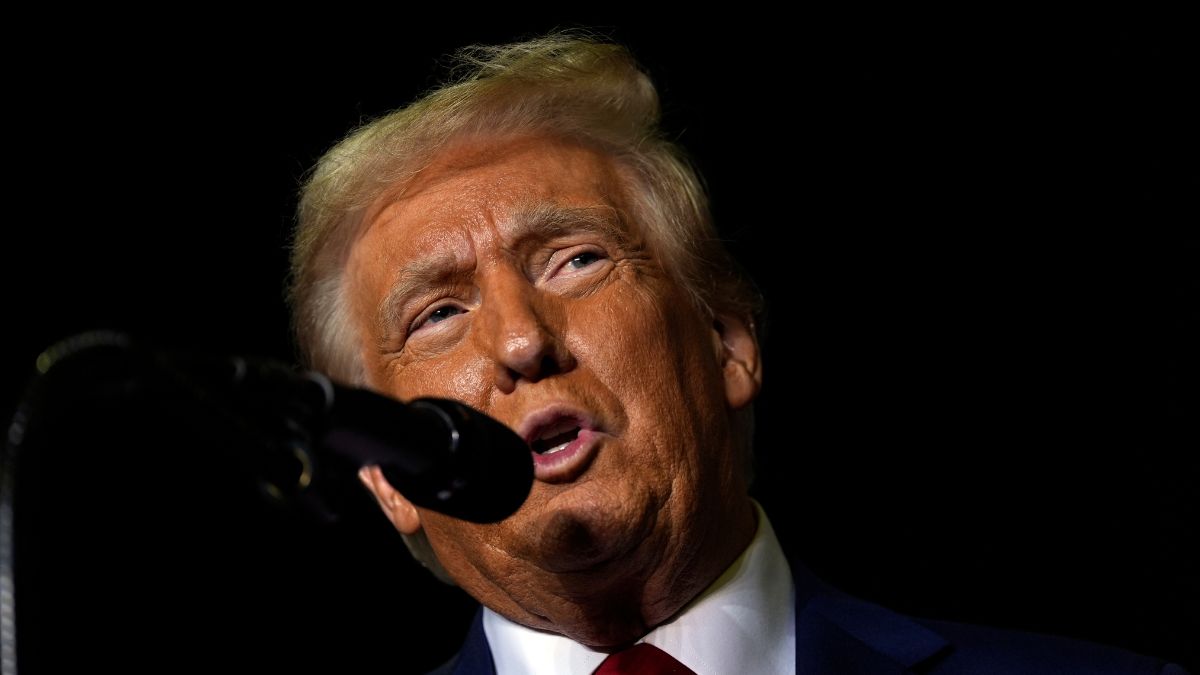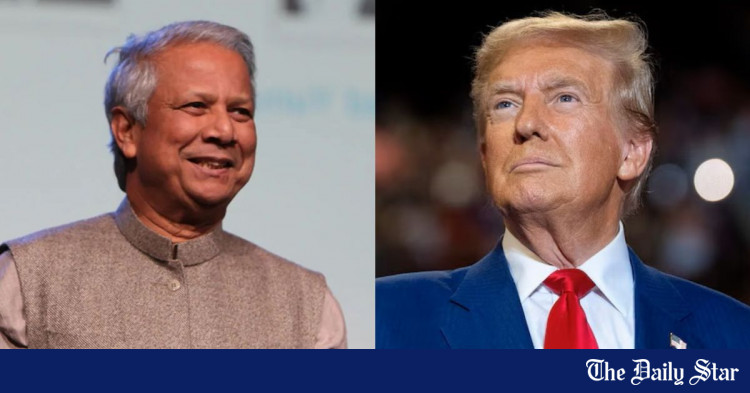Saif
Senior Member
- Messages
- 17,481
- Likes
- 8,438
- Nation

- Residence

- Axis Group

How about stitching your ass and goStitch fancy lingerie for Melania
And go
Follow along with the video below to see how to install our site as a web app on your home screen.

Note: this_feature_currently_requires_accessing_site_using_safari



How about stitching your ass and goStitch fancy lingerie for Melania
And go


)
)
BD is on Trump's radar for Violance against Hindus and Christians.
Though Hindus have not been able to wield an influence that is comparable to the Jewish or Islamist lobbies yet, but at least there is a start
)
The statement posted by Donald Trump where he has condemned the persecution of Hindus in Bangladesh is an important one. AP
In the final days of campaigning, heated exchanges between US presidential election contenders Kamala Harris and Donald Trump accelerated at an expected rate. But one remark made by Trump last week particularly captured my attention when he spoke on the plight of the Bangladeshi Hindus.
At a time when India’s own opposition parties have abandoned them to be slaughtered by the now emboldened Islamist forces, this gesture was exceptional.
While posting a message on the Hindu festival of Diwali on social media platform X, Trump condemned the “barbaric violence” taking place against Hindus, Christians, and other minorities in Bangladesh. He also accused Kamala and Joe Biden of ignoring Hindus across the world and in America.
Advertisement
Interestingly, Trump also called out the anti-Hindu agenda of the radical leftists as well and vowed to protect Hindu Americans after coming to power. In the same message, he also promised to strengthen the country’s great partnership with India, where he referred to Prime Minister Narendra Modi as his good friend.
These remarks by Donald Trump came on the eve of US elections, and there is no doubt that besides a legitimate concern for the plight of Bangladeshi Hindus, it also has some degree of politicking to it.
After all, a whopping 80 per cent of the population of Indian-Americans is Hindu and in a close electoral contest where Kamala Harris is giving a tough fight to Trump, every constituency of support matters. In fact, Trump has courted the Hindu diaspora community settled in the United States even on previous occasions as well for political reasons. During the 2016 presidential elections, he attended a massive rally in New Jersey trying to woo the Hindu-American community. He had also carried forward the precedent set by President George W Bush in 2003 of celebrating Diwali at the White House by lighting the ceremonial lamp every year during his presidency.
However, despite all the attempts by Republican candidate Donald Trump to woo the Hindu electorate in the US, the Indian-American community has long been a supporter of candidates from the Democratic Party instead. This is because of its stand on immigration, healthcare, and other issues, which resonates more with Indian-Americans.
At a population of around 5.2 million, they make up the second largest immigrant community in the US, showing a deep preference for the Democratic Party historically. But this trend is also changing sharply now. As per a survey released this year by the Carnegie Endowment for International Peace, the number of Indian-American respondents who identified themselves as Democrats has fallen to 47 per cent from 56 per cent in the last four years. While those who identify themselves as Republicans have increased to 21 per cent from just around 15 per cent since 2020. If these numbers hold true, they will also significantly impact their voting pattern in the current elections. This means the support base for the Grand Old Party is widening among the Indian-Americans, of which the majority are people from the Hindu community.
Advertisement
Interestingly, Trump’s outreach to the Hindu Americans has come at a time when one of the major grudges that they have with the Republicans is their perceived intolerance towards minorities, especially under the influence of the Christian evangelical lobby. In such a scenario, some past statements by Republican leaders calling the countrymen to embrace Christian nationalism haven’t gone down well with its political base among the Indian-American community.
But now the Republican Party is fast transforming its past image where many pro-Hindu leaders have risen up to the top ladders and are wearing their credentials with aplomb. This includes Nikki Haley, Vivek Ramaswamy, and the vice presidential nominee JD Vance’s wife, Usha Vance. Unlike Kamala Harris, who, despite having Indian ancestry, has played up her identity as a black woman, these leaders who come from a Hindu background have always expressed immense pride for their roots.
Advertisement
The trend of politicians embracing their Hindu identity more openly is not limited to American politics alone. We have seen Rishi Sunak do the same in the United Kingdom as well. In fact, in recent years, there have been many instances of various international leaders raising the issue of Hindu rights on global platforms. Last year, Geert Wilders, a Dutch politician, vowed to support the cause of persecuted Hindus in Pakistan and Bangladesh after a surprise election victory in December 2023. In fact, Wilders has been a long-standing advocate of Hindu rights; he has even raised the matter of attacks on Hindus in Islamic countries in the parliament of the Netherlands.
Advertisement
Similarly, Tulsi Gabbard, who is herself a practicing Hindu, has played a key role in elevating the status of the community in American politics. Way back in 2013, she sent a loud message to the entire world when, after winning her election to the Congress as the first and only practicing Hindu, she took an oath on Srimad Bhagvad Gita.
Trump’s reference to Bangladeshi Hindus is an extension of the same trend. This shows that Hindu identity and Hindu rights are gaining more prominence across the world, and in a much welcome move, this community is finally looking to increase its stakes in the global political discourse.
Advertisement
In India, Hindus are often accused of majoritarianism and demonised for seeking a political identity. This despite the fact that other communities are rather encouraged to mobilise politically due to the compulsion of vote-bank politics by certain mainstream political parties in the country. This name-calling and suppression of political free will of Hindus has an effect on their global identity as well. For instance, in Canada, a large section of the immigrant population is Hindu and often faces attacks on its places of worship, among other forms of harassment, and yet it is the Khalistanis who dominate the narrative and compel politicians to appease them by deploying their collective strength.
Hindus may be a comfortable majority in India, but if we look at the global level, then Hindus are not a majority community but just a small minority in comparison to Abrahamic religions such as Islam and Christianity. If Christians constitute 31.6 per cent of the world population and Muslims comprise around 25.8 per cent then only a small section of 15 per cent identifies itself as Hindus globally.
Besides India and Nepal and, to a certain extent, Mauritius, Hindus in any other country of the world are identified as a minority community. In such a scenario, their rights are often ignored, with grim stories of their persecution in many countries going completely under the radar. But in recent years, thanks to India’s economic performance and the increasing purchasing power of the Hindu community in the country, there has been a willingness to back campaigns for Hindu rights across the world.
This doesn’t mean that Hindus have been able to wield an influence that is comparable to the Jewish or the Islamist lobbies yet. But at least there is a start. The statement posted by Donald Trump where he has condemned the persecution of Hindus in Bangladesh is an important one. The Hindus are finally finding a political voice globally.
The author is a New Delhi-based commentator on geopolitics and foreign policy. She holds a PhD from the Department of International Relations, South Asian University. She tweets @TrulyMonica. The views expressed in the above piece are personal and solely those of the author. They do not necessarily reflect Firstpost’s views.
Get all the latest updates of US Elections 2024
Tags
Donald TrumpHindusUS Presidential Elections
Read More
)
How Trump’s concern for Bangladeshi Hindus shows Hindu community gaining a political voice
Though Hindus have not been able to wield an influence that is comparable to the Jewish or Islamist lobbies yet, but at least there is a startwww.firstpost.com













Loading...